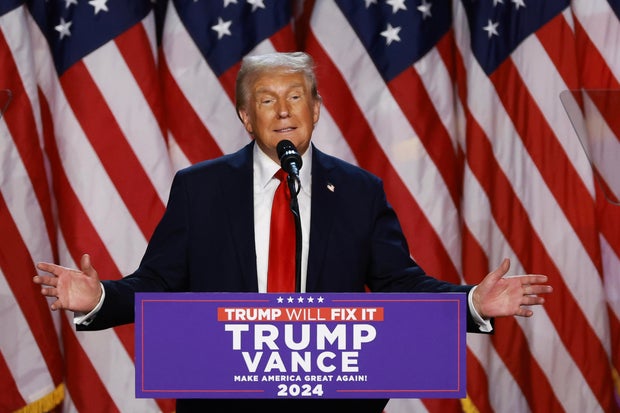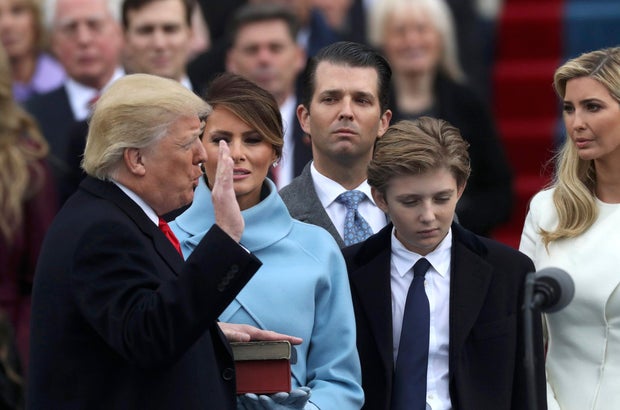President-elect Donald Trump is the projected winner of the 2024 election, besting Vice President Kamala Harris for the highest office in the land.
CBS News projected the former president will win multiple battleground states. As of Wednesday morning, Trump was also ahead in the popular vote, something that eluded him in 2016.
Although Trump was projected the winner early Wednesday, Nov. 6, it will be several months before Trump takes office. Here’s what to know about when he will be sworn in.
When will Trump be sworn in?
President-elect Trump will be sworn in at his inauguration. The presidential inauguration is always held on Jan. 20, as specified by the Constitution’s 20th Amendment.
The president-elect becomes the president immediately after being sworn in. The new president typically moves into the White House after the ceremony.
Trump has vowed to end the war in Ukraine before Inauguration Day, but he has no presidential powers before being sworn in. He has made a number of promises for his presidency, including ending ObamaCare and beginning mass deportations of migrants. In his closing message the night before Election Day, Trump promised greatness if he won.
“After all we have been through together, we stand on the verge of the four greatest years in American history,” Trump said. “You watch, it’s going to be so good, it’s going to be so much fun. It’ll be nasty a little bit at times, and maybe at the beginning, in particular, but it’s going to be something.”
What happens on Inauguration Day?
The inauguration is about two and a half months after Election Day. It begins with a procession to the Capitol, according to the Joint Congressional Committee on Inaugural Ceremonies.
The vice president recites his oath of office and is sworn in first. Around noon, the president recites his own oath of office and is sworn in.
Then, the president gives an inaugural address. The speech usually outlines a president’s vision and goals for their term. At his first inauguration, Trump said he was planning on “transferring power from Washington, D.C. and giving it back to you, the American people.”
After the speech, the previous president makes an honorary departure from the Capitol. That’s followed by a signing ceremony, where the new president signs their first official actions. That’s followed by a number of ceremonies.
The final traditional event of the inauguration is the pass-in review, when the president and vice president review military troops before leading a procession of ceremonial military regiments, citizens’ groups, floats and marching bands from the Capitol to the White House.
The president-elect recites this oath, as required by the U.S. Constitution, ahead of being sworn in, according to the Congressional committee:
“I do solemnly swear (or affirm) that I will faithfully execute the Office of President of the United States, and will to the best of my ability, preserve, protect and defend the Constitution of the United States.”
The vice presidential oath of office is the same as the vow taken by senators, representatives, and other federal employees, according to the Congressional committee:
“I do solemnly swear (or affirm) that I will support and defend the Constitution of the United States against all enemies, foreign and domestic; that I will bear true faith and allegiance to the same; that I take this obligation freely, without any mental reservation or purpose of evasion; and that I will well and faithfully discharge the duties of the office on which I am about to enter: So help me God.”


